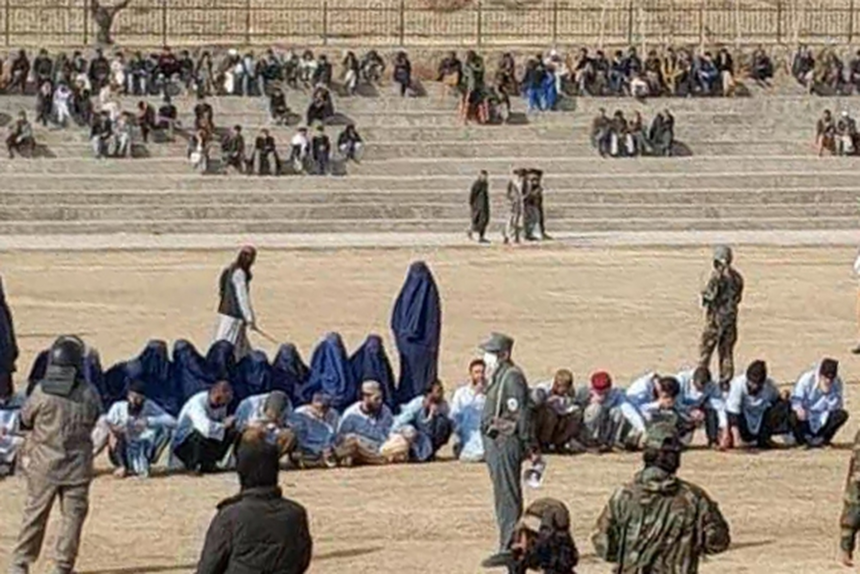RASC News Agency: In the latest iteration of the Taliban’s coercive “morality” campaign, two women and three men were publicly flogged in Jawzjan’s Qush Tepa district and Mazar‑e‑Sharif, Balkh, after being accused of what the regime labels “illicit relationships.” According to the Taliban’s so‑called Supreme Court, each was sentenced to 25–39 lashes, administered in full public view before local officials, court personnel, armed militants, and gathered residents a ritualized humiliation designed to terrorize, not to deliver justice. Since August 2021, the Taliban have weaponized a hard‑line, extra‑legal reading of Sharia to police private life, targeting thousands of Afghanistani women and men for alleged “moral crimes”: a phone call, a friendship, fleeing an abusive home, or any relationship outside marriage. Trials routinely take place without legal counsel, due process, evidentiary standards, or independent appeal often in military compounds or improvised courts where intimidation, not law, determines the outcome.
Human rights organizations including Amnesty International and Human Rights Watch have repeatedly condemned such corporal punishments as inhuman, degrading, and in clear violation of Afghanistan’s obligations under international law, including the Convention against Torture (CAT) and the International Covenant on Civil and Political Rights (ICCPR). These bodies warn that the Taliban’s punitive theater entrenches a regime of systematic gender persecution, deepens collective fear, and normalizes cruelty as governance. Analysts say the Taliban’s public floggings carry a dual political message: first, the ruthless suppression of individual freedoms, especially of women; second, the performative projection of ideological supremacy a reminder that, amid famine, unemployment, and institutional collapse, the group’s priority remains policing bodies, not rebuilding a state. Since 2021, hundreds of public floggings have been documented in provinces including Herat, Kandahar, Laghman, Bamiyan, Badakhshan, and Balkh frequently imposed on the flimsiest of grounds, from whispered accusations to unverifiable “intelligence” notes.
The costs are profound and lasting. Psychological trauma, social stigmatization, and community fragmentation accompany every lash. Survivors overwhelmingly women face lifelong consequences: exclusion from work and education, forced displacement, coerced marriages, or renewed cycles of abuse. None of this produces security or justice; it only cements fear as the regime’s primary instrument of control. Systematic documentation of all corporal punishments by independent monitors, with survivor protection protocols. Universal‑jurisdiction investigations by willing states into torture and cruel, inhuman, or degrading treatment. Targeted sanctions and travel bans against judicial and security officials ordering or executing such punishments.
Emergency legal aid and evacuation pathways for high‑risk groups: women journalists, activists, former officials, and those already condemned by Taliban courts. Conditional engagement: any dialogue or aid channeled through Taliban-controlled institutions must be tethered to verifiable, enforceable human-rights benchmarks including an immediate halt to public corporal punishment. The Taliban call these spectacles “divine rulings.” In reality, they are acts of state violence dressed in scripture calibrated to broadcast domination, extinguish dissent, and erase dignity. For a country drowning in poverty, displacement, and hunger, the lash is not law; it is the loud confession of a regime that governs through fear because it cannot govern through consent.






